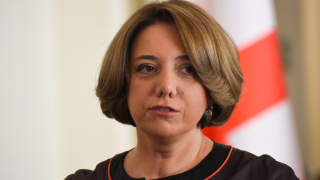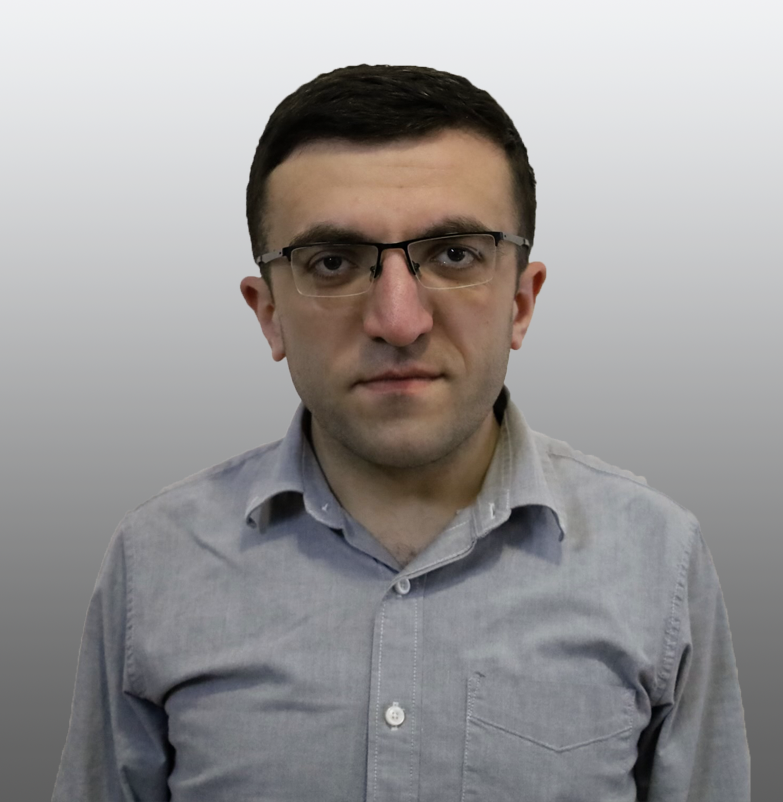Salome Samadashvili: “Economic dependency on Russia is on the rise, Russian investments in our country have increased seven-fold.”
Verdict: FactCheck concludes that Salome Samadashvili’s statement is HALF TRUE.
After Russia’s invasion of Ukraine, remittances from Russia to Georgia, the number of Russian migrants as well as registered Russian companies and real estate purchased by Russian nationals have increased. The trade turnover between Georgia and Russia has also expanded. Georgia’s economic dependence on Russia is higher today as compared to what was before the war. However, of note is that the growth of Georgia’s dependency on Russia was higher in 2022 and there is a trend of a decrease in most of cases as compared to 2022.
In regard to investments as such, this parameter cannot be relevant for the assessment of the growth of dependency on Russia. It is true that investments from Russia to Georgia were USD 8 million in January to June 2022 whilst they are seven times more at USD 56 million in the same period of 2023 but this effect of leaps and bounds growth was largely attributable to the base period.
In the first half of 2022, Russian investments in Georgia nearly dropped to a minimum and amounted to 1%. In the first half of 2023, the country’s share in investments is 5% which is close to its “natural level.” There were also some previous cases with Russian investments either growing or declining. For instance, the share of Russian investments was 2% or less in the first two quarters of 2012, 2013 and 2016 whilst it rose to 9% in the first half of 2014 and reached 12% in January-June 2021.
Since 24 February 2022, economic dependency on Russia has increased, although this growth is much smaller as compared to what the MP’s example shows. At the same time, her example itself does not depict the situation in regard investments and in fact shows investment growth from Russia more exaggerated than it actually is. Therefore, FactCheck concludes that Salome Samadashvili’s statement is HALF TRUE.
Analysis
On 4 October 2023, Salome Samadashvili, MP, spoke about the growth of investments from Russia in her question to the Minister of Economy, Levan Davitashvili (from 1:31): “Russian investments in our country increase seven-fold whilst the whole world, or the free world anyways, seeks to become independent from Russia, why do you [government] tie this country’s economy to Russia?”
As opposed to remittances, tourism and foreign trade, Russia has not had a double-digit share in foreign direct investments since 2003. In total, USD 1.1 billion was invested from Russia in Georgia from 2021 to July 2023 which accounts for 4% of the total foreign direct investments. The picture will be approximately the same if we only take the January-June period for comparison.
Graph 1: Foreign Direct Investments in January-June (USD Million)

Source: National Statistics Office of Georgia
Measuring the first two quarters from 2011 until today, investments coming from Russia reached their maximum of 12% in 2021, amounting to USD 55-56 million in terms of volume in 2012 and 2023. In the period under review, Russia's share in foreign direct investment has been 5% or less in ten out of 13 cases including the first half of 2023.
In January-June 2023, investments from Russia did indeed increase seven-fold as compared to the same period of the previous year. However, the base period and the fact that only USD 8 million was invested in Georgia from Russia in the first half of last year should be taken into account. The effect of sharp growth is also related to this statistical indicator.
When analysed by field, almost half of the USD 56 million – USD 27 million was channelled to finance and insurance, USD 18 million to real estate, USD 7 million to information technologies and USD 4 million to trade.
Salome Samadashvili named investment growth from Russia as proof of Georgia’s rising economic dependency on Russia. As compared to 2021, other parameters have also increased but more so in 2022 as compared to 2023. If in January-August 2021 the trade turnover with Russia accounted for 11.7% of Georgia’s total economic turnover, it increased to 12.4% in the same period of 2022 and decreased to 12% in 2023.
In the second quarter of 2019, the share of Russian nationals in tourism revenues was 31%, in 2022 it was 20% and it increased to 21% in 2023. As clarified by the National Bank of Georgia, some 38.4% of Russian nationals in Georgia have been staying in Georgia for more than a year as of 30 June 2023 and the money they are spending is no longer considered as tourism revenue in line with the International Monetary Fund’s methodology.
The largest increase was recorded in remittances. In the period of March-August 2021, the share of remittances from Russia accounted for 18% of the total remittances whilst it soared to 44% in the same period of 2022 and decreased to 38% in 2023, including a 21% decrease in August.
After 24 February 2022, the amount of real estate purchased by the Russian nationals and Russian companies registered in Georgia also increased drastically.
As a whole, Georgia’s economic dependence on Russia has increased but a greater increase was observed in the first months of the beginning of the war. In regard to foreign investments, stressed by Salome Samadashvili, there is only a slight increase in the amount from USD 55 million to USD 56 million dollars as compared to the first half of 2021 whilst in terms of Russian investments to the total investments ratio, they have decreased from 12% to 5%. As compared to the first two quarters of 2022, investments have indeed increased seven-fold from USD 8 million to USD 56 million but this increase was attributable to the base effect as investments from Russia, both in terms of the amount and the share (1% of total investments), were reduced to almost a minimum level in the first half of last year. In January-June 2023, Russia's share in investments equalled 5% which is close to the average indicator of the pre-war period.
Given the accurate figures in her statement but the partially wrong interpretation of the statistics, FactCheck concludes that Salome Samadashvili’s statement is HALF TRUE.








